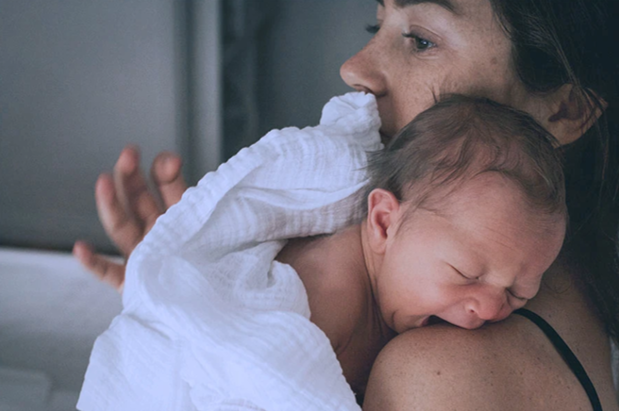
One of my clients told me once that she felt like her baby was experiencing the longest sleep regression ever…3 years :) !!! Every time the baby’s sleep got worse she blamed it on sleep regression! Sleep regression does happen a few times in the first year of a baby’s life but if your baby just doesn’t sleep well in general, it isn’t considered a “regression”!
A Sleep Regression is thought to occur when a baby who is normally sleeping well begins to wake frequently at night and/or fights/refuses naps. The long stretches of sleep between feedings are gone. So is the somewhat predictable sleep schedule. Instead, the baby is exhausted, fussy, and yet won’t fall asleep or stay asleep long enough. These regressions seem to come out of nowhere and can often times create havoc to the baby's sleep and may need some professional support and guidance to resolve.
I find that when parents are aware of an oncoming sleep regression and know how to handle it, the experience is not as daunting – and the problem is managed. So I have listed below some of the main sleep regression periods in a baby's life and when they typically occur with most babies.
Many babies will go through one or all sleep regression phases and there are a few lucky parents (we all know one of them :) ) whose babies won’t experience any sleep regression or at least not the severe kind :) !! If you are not one of the lucky parents then this information may be very helpful to you to be prepared in advance and tackle your babys sleep regression effectively and not get boggled down by it.
4 months: Every parent seems to know of the very popular 4 month sleep regression. 45 minute sleep cycles emerge. Night sleep may reduce to 2 hour cycles at the most, after which the baby wakes up. At this stage, work on teaching self settling and more effectively managing naps.
8/9 months: There are a lot of major growth and development that happens at this age for babies. Many babies may start crawling, solids are starting to feature as a major part of the diet, separation anxiety begins. Babies may becoming over clingy to the mother at this stage. Minor sleep regressions may be observed.
12 months: Yay!! You survived Year 1!!! It’s birthday time and sometimes another major sleep regression time! Babies may resist a second nap and some babies may just refuse napping. This in turn causes over tiredness very quickly. Best to continue offering naps and take steps to ensure baby doesn’t get overtired such as maintaining an early and regular bed time.
18 months: Most babies will be down to just one nap per day but some babies may still not be comfortable with just one nap. Babies are more independent, are very involved in play, fully mobile, fairly communicative, etc. Babies may also go through another round of separation anxiety around this time. Consistency in following healthy sleep habits and maintaining an early bed time will help.
24 months: You have made it to the Terrible Two’s! You have survived all the sleep regressions so far and you will be able to handle this one too ;)! Babies will want things done their way. Their imagination will start to develop and if they are not used to being on their own in the dark, they may start to be nervous of it. Stay calm and consistent with the healthy sleep habits you already have in place. If you don’t have a healthy sleep routine, and a baby sleeping well through the night its a good idea that you work on changing thatquickly now.



Very Nice information about baby's sleep. It is important for all the mother's to have knowledge about child sleep behavior. Pls visit my website if you want to know more - http://www.beingmomandmore.com/9-ways-to-make-your-child-sleep-better/